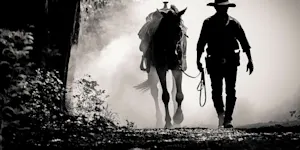What Makes This Word Tick
Ah, "famished," a word that doesn’t just express hunger—it declares a dire state of needing food! It's a more dramatic cousin of "hungry," suggesting you could eat a horse (or maybe even a small herd). Its very sound conveys urgency, the sort of feeling you might get mid-afternoon when you realize it’s been hours since lunch.
If Famished Were a Person…
If "famished" were strolling down the street, it would probably be clutching its stomach, eyes wide, making a beeline for the nearest diner. It might resemble that friend who always shows up at gatherings proclaiming they haven’t eaten all day—even if it's just half a fib.
How This Word Has Changed Over Time
While "famished" today strictly covers intense hunger, it used to refer more broadly to being utterly exhausted or worn out, not just by lack of food. Over time, its usage narrowed, taking on its current gastronomical flair.
Old Sayings and Proverbs That Use Famished
Surprisingly, "famished" doesn’t often star in traditional proverbs or sayings. However, the sentiment is echoed across cultures with phrases akin to "Hunger is the best sauce."
Surprising Facts About Famished
You might find it amusing that "famished" is related to the French word "faim," meaning hunger. In the past, it also used to imply suffering more generally, perhaps reminiscent of wandering through the desert in some epic tale.
Out and About With This Word
Picture yourself walking out of a matinee movie around 3 p.m. with nothing but a half-eaten bag of popcorn in your belly. You’re practically "famished," ready to hit the closest café. It expresses a moment most of us face more often than we'd like to admit—a "starving between meals" kind of feeling.
Pop Culture Moments Where Famished Was Used
"Famished" doesn’t get the front-row seat in pop culture as much as it deserves. However, picture any tense movie scene where someone hasn't eaten due to a hectic series of events, and you'll likely hear some form of "I'm famished" as soon as they catch a break.
The Word in Literature
In literature, "famished" often paints vivid scenes in books where survival is key. Think of iconic survival tales or narratives like "The Grapes of Wrath," where hunger and endurance go hand in hand. It captures primal instincts and the universal human need for sustenance.
Moments in History with Famished
If you think of the great migrations or the Dust Bowl era, "famished" might describe the plight of those who journeyed vast distances with scant provisions. Their stories spoke volumes of desperation and resilience beyond plain hunger.
This Word Around the World
Internationally, the essence of "famished" can be found in phrases like the Spanish "estar muerto de hambre," literally to be "dead of hunger." While the phrasing differs, the imagery remains intense and immediate.
Where Does It Come From?
"Famished" draws from the Old French "afamer," which has roots in the Latin "fames" for hunger. Over the centuries, English embraced it as a more vivid way to say, "I could really use a sandwich."
How People Misuse This Word
Sometimes folks will say they’re "famished" when they just skipped breakfast. In truth, "famished" implies a level of hunger more fit for missed meals over several days, a bit exaggerated for just a late lunch.
Words It’s Often Confused With
Starving: While similar in intensity, "starving" is used more frequently in modern contexts and can imply a more dire, prolonged state of hunger.
Hungry: A much milder form of needing food, often used casually without the dramatic flair of "famished."
Additional Synonyms and Antonyms
For synonyms, consider "ravenous" or "voracious." On the opposite spectrum, "sated" or "satiated" offer a sense of comfortably full contentment.
Want to Try It Out in a Sentence?
After a long day of hiking without so much as an energy bar, I stumbled into the campsite utterly famished, ready to devour whatever I could get my hands on.
















